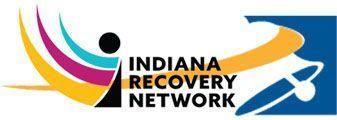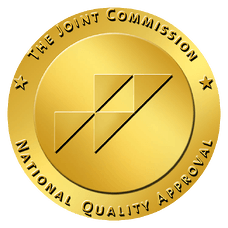Complete the pre-screen form below to initiate the admission process. Our admissions team will contact you shortly.
Cognitive Behavioral Therapy (CBT) & Substance Use Disorders
With over 57.8 million individuals grappling with mental illness and an additional 46.3 million facing substance use disorders, understanding the therapeutic modalities available to alleviate symptoms linked to these conditions has never been more crucial. Among the various therapeutic approaches, cognitive behavioral therapy (CBT) stands out as one of the most widely utilized and effective methods, specifically designed to tackle the challenges often encountered by those with certain mental illnesses and/or substance use disorders.
In this article, we will explore the fundamentals of CBT, how it operates, the relationship between CBT and substance use disorders, and the ways in which this therapy can support individuals on their journey to recovery from addiction.
What is Cognitive Behavioral Therapy (CBT)?
Cognitive Behavioral Therapy, commonly known as CBT, is an evidence-based form of psychotherapy proven effective in addressing substance use disorders and co-occurring conditions, along with several other mental health issues, including (but not limited to) the following:
- Depression
- Anxiety
- Eating disorders
- Bipolar disorder
- Schizophrenia
- Personality disorders
This psychotherapy method delves into automatic thoughts, cognitive distortions, and the fundamental beliefs individuals hold about themselves, aiming to relieve distress in patients facing mental health challenges or substance use disorders.
CBT was pioneered in the 1960s by psychiatrist Aaron T. Beck, who observed that many of his depressed patients exhibited distorted thought patterns. This observation led him to conceptualize depression as a cognitive disorder rather than merely a mood disorder, prompting the development of new theories and research that ultimately gave rise to CBT. Over the past sixty years, CBT has been embraced and respected by numerous therapists and psychiatrists around the globe.
What are Cognitive Distortions?
A cognitive distortion refers to a flawed or incorrect thought, perception, or belief. Some common examples of cognitive distortions are catastrophic thinking, jumping to conclusions, overgeneralization, and polarized thinking. Techniques from Cognitive Behavioral Therapy (CBT) can assist individuals dealing with these cognitive distortions by helping them recognize these patterns and reframe their thoughts to alleviate distress.
How Does Cognitive Behavioral Therapy Work?
Cognitive behavioral therapy (CBT) is grounded in fundamental principles that assert psychological issues arise from flawed and/or negative thinking patterns, as well as learned behaviors that are often unhelpful. CBT places a strong emphasis on helping patients cultivate new coping skills to manage these thoughts and behaviors, ultimately reducing distressing symptoms and enhancing their overall quality of life.
During CBT sessions, therapists adhere to various guiding principles to deliver this therapeutic approach effectively. Some of these include:
- Establishing a solid therapeutic relationship with the patient.
- Continuously assessing the patient's progress throughout sessions.
- Fostering a positive outlook.
- Concentrating on the present moment.
- Promoting collaboration and active engagement.
- Educating the patient about CBT.
- Teaching patients strategies to counter negative thoughts.
- Assigning practical tasks, such as homework, for patients to complete.
Although CBT is a time-sensitive therapy typically spanning 3 to 6 months, it has demonstrated remarkable efficacy in assisting patients in altering their thinking and behavioral patterns. Therapists collaborate with patients to guide them in:
- Identifying their distorted thinking patterns that contribute to their concerns and reassessing them.
- Gaining a deeper understanding of others' behaviors and motivations.
- Employing constructive problem-solving skills to navigate challenging scenarios.
- Building self-esteem and confidence in their abilities.
Additionally, therapists support patients in confronting their fears, promote role-playing to practice handling difficult situations positively, and teach relaxation techniques to encourage a sense of peace and calm.
Cognitive Behavioral Therapy Techniques
Throughout a patient's therapy sessions, the therapist is likely to incorporate a diverse array of techniques aimed at enhancing the effectiveness of Cognitive Behavioral Therapy (CBT). Some of these techniques may include:
- Thought records, which consist of a series of worksheets that delve into the connections between thoughts, emotions, and behaviors. These records assist patients in identifying their automatic thoughts and the emotions tied to them, enabling an exploration of whether these thoughts are constructive or indicative of cognitive distortions. Patients can then formulate alternative thinking strategies.
- Relaxation techniques, which encompass practices such as deep breathing, muscle relaxation, and visualization, are designed to alleviate stress and anxiety. Patients learn to employ relaxation techniques during high-stress situations, facilitating a transition from instinctive reactions to responses grounded in their core objectives for well-being.
- Social skills training, which aids patients in enhancing their interpersonal relationships by minimizing disruptive behaviors. This training may include role-playing, constructive feedback, and opportunities for practice.
- Behavioral rehearsal allows patients to practice positive behavioral patterns and interpersonal strategies, commonly referred to as assertiveness training.
Cognitive Behavioral Therapy & Addiction Treatment
Cognitive behavioral therapy (CBT) has emerged as a widely utilized approach for providers assisting patients with substance use disorders. Within the realm of CBT, various specific therapies are frequently employed in addiction treatment, including but not limited to:
- Motivational interviewing
- Contingency management
- Relapse prevention
- Family therapy
These CBT-based interventions can support individuals in recovery by enabling them to:
- Cultivate intrinsic motivation for change
- Set and achieve their treatment goals
- Recognize and avert high-risk situations that may trigger substance use
- Enhance their relationships with family and friends
Moreover, CBT for substance use disorders aims to diminish cravings for drugs or alcohol by promoting rewards for sustaining sobriety and developing strategies to reduce use and maintain abstinence.
CBT & Addiction Treatment at Wabash Recovery
If you're facing challenges with drug or alcohol misuse or addiction, it's time to seek the help you truly deserve. Contact our inpatient rehab facility near Indianapolis to connect with one of our skilled and compassionate rehab admissions navigators. They are available to address any questions you might have, including inquiries about using insurance to cover rehab costs and the various levels of addiction treatment we provide.
Call us today at
(765) 780-7689 and embark on your journey toward recovery right now.
You aren't alone. You deserve to get help.
Wabash Recovery is located in Kokomo, Indiana, which is easily accessible from Indianapolis.
Take your next step toward recovery:
✔ learn more about our addiction treatment programs.
✔ see how popular insurance providers such as Aetna or BlueCross offer coverage for rehab.
✔ view photos of our facility.



